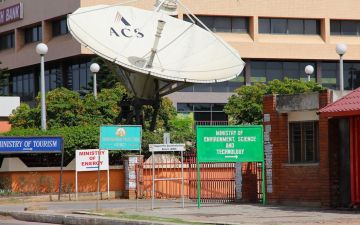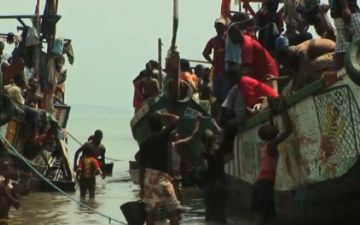Only a few months into the oil business and Ghana already has its Oil City. Takoradi, capital of the Western Region, has a new nickname and, if the boosters are correct, will soon be Ghana's boomtown.
On December 15th, 2010, Ghana became the latest African nation to join the oil producers' club. During a ceremony broadcast live across the nation, President John Atta Mills opened the valves on the country's first offshore platform, the "Kwame Nkrumah," and the oil began to flow.
Ghana's Jubilee field holds an estimated 1.8 billion barrels of oil and with several new discoveries and other offshore blocks looking promising, Ghana is poised to become a significant player in the coming years.
President Mills has promised that oil income will be used to promote economic development and that Ghana will avoid the so-called "resource curse." The country recently passed a landmark Petroleum Revenue Management Plan and many observers are cautiously optimistic.
But that doesn't mean the road ahead won't be perilous. Oil money will test Ghana's democratic institutions, and the government's response to the "oil challenge" has significance for the entire Gulf of Guinea region where "new" oil has been found from Sierra Leone to Angola.
In a series of ongoing reports, Christiane Badgley examines how oil money (or the dream of it) is already changing life on the ground in the Western Region. She also investigates the significant environmental concerns related to Ghana's fast-track development of deep-water offshore drilling.
This project is a collaboration between the Pulitzer Center and the Center for Public Integrity's International Consortium of Investigative Journalists (ICIJ).


